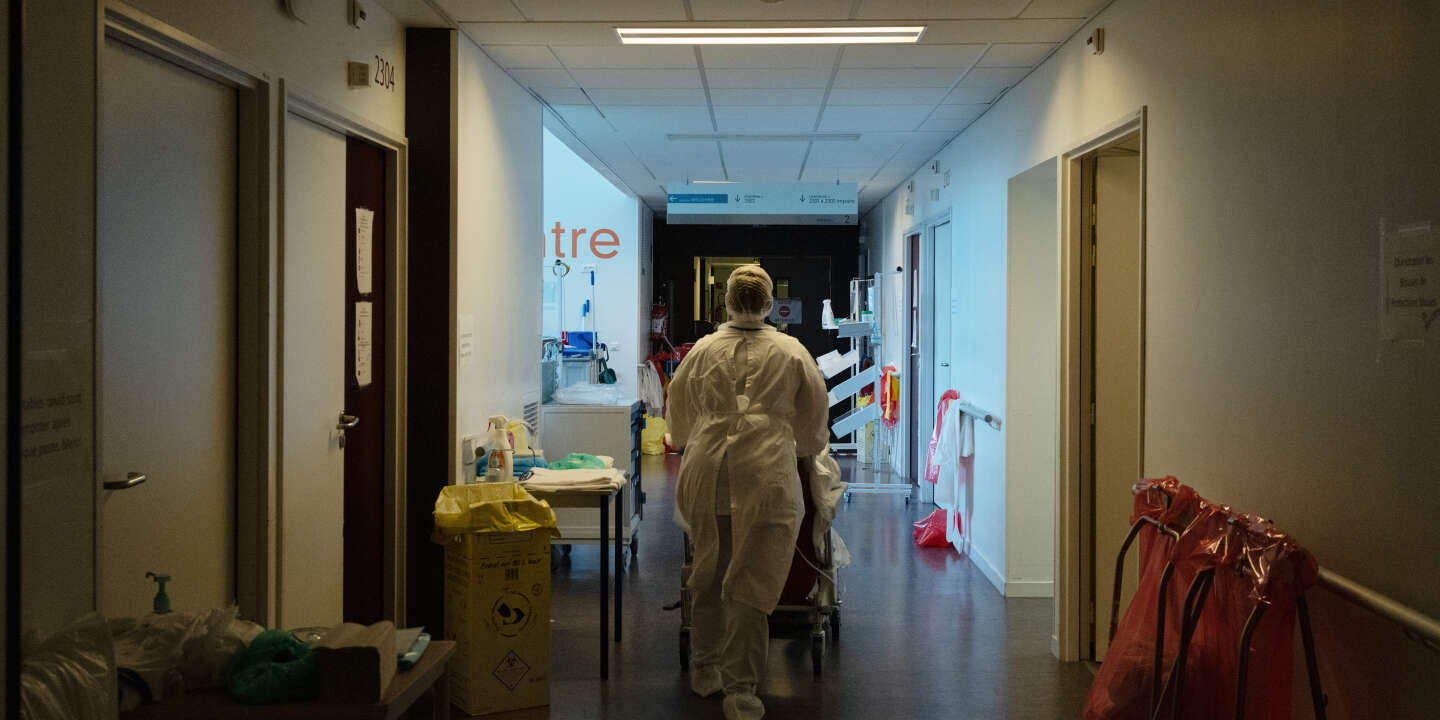ReportageIn two weeks, 85 caregivers at the Pas-de-Calais hospital center were affected by SARS-CoV-2. Several patients, who arrived negative when they entered the hospital, were infected during their stay.
–
At the Arras hospital center, in Pas-de-Calais, the shock was violent. “Our role is to treat, not to transmit a disease …”, explains a caregiver in front of the imposing red brick building against a gray sky. The last few weeks have been trying. In addition to a threefold increase in the number of patients with Covid-19 in fifteen days, the establishment had to deal with a sudden increase in the number of contaminated staff.

In two weeks, 85 caregivers were affected by the virus, in the structure which has some 2,000 agents. Several patients, who arrived negative upon entering the hospital, became positive during their stay. A situation “Stabilized”, provides management, Tuesday February 2. “We are just starting to feel more serene, says Sylvain Delporte, 37, senior health executive. But it was a fortnight of anguish, tension and questioning, with the feeling of not being able to do anything to stop the contamination. “
“Intra-hospital clusters are a bit new for this season 3”, notes with sadness the neurologist Patrick Le Coz, president of the establishment medical commission.
“Everything was packed in a few days”, describes Géry Hannebicque, the head of the cardiology service in which a cluster was declared in mid-January. Red stethoscope around his neck, white FFP2 mask highlighting his large blue eyes, the 61-year-old man walks up a floor that is now almost empty. The seven Covid-19 patients have been grouped on one side, three other non-Covid-19 occupies another sector. The twenty remaining beds are unoccupied, the new patients having been gradually accommodated in other departments.
“At lightning speed”
From January 10, one, then two, then three new patients returning from intensive care who declared symptoms and tested positive for the coronavirus, while all patients are tested on arrival at the hospital.
“We said to ourselves that it was bad luck, the hygiene unit did not detect any clusters at the start, then we went to four, five: we understood that it was unusual”, testifies the doctor Hannebicque. Staff are also affected: nearly twenty were infected in the two weeks that followed, more than a third of the service. The majority of them have now returned from their period of isolation.
You have 71.45% of this article to read. The rest is for subscribers only.
–

